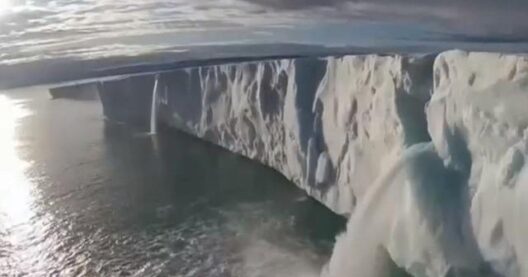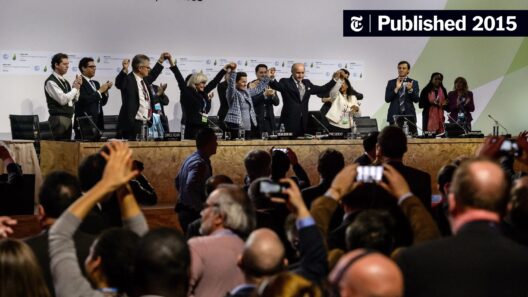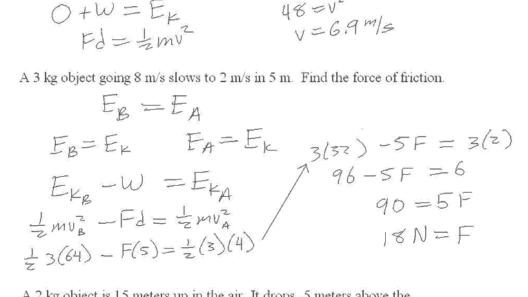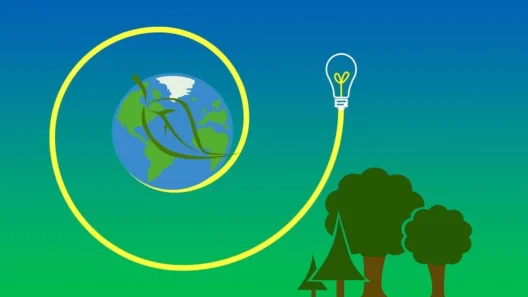Conservation of energy is a fundamental principle in physics and environmental science, reflecting the idea that energy cannot be created or destroyed but merely transformed from one form to another. This principle is not only vital in understanding the mechanics behind energy transfer but also plays a critical role in promoting sustainable practices in our daily lives. It encompasses various aspects that can be effectively grasped through educational resources like BBC Bitesize, particularly tailored for KS3 students.
The fundamental concept of energy conservation is predicated on the law of conservation. It states that in a closed system, the total amount of energy remains constant, regardless of the processes or reactions occurring within that system. This means that the energy present at one moment will manifest in different forms—such as kinetic, potential, thermal, or chemical—without any net loss. A quintessential example is the transformation of potential energy in a raised object into kinetic energy when it falls. Such transformations illustrate the seamless flow of energy, underscoring its inherent constancy.
In the realm of education, particularly for Key Stage 3 (KS3) students, the concept of energy conservation is explored through various engaging and informative mediums. BBC Bitesize provides a wealth of resources aimed at making complex ideas more accessible. It features simplified explanations, interactive activities, and quizzes designed to reinforce understanding. For instance, learners might encounter animations illustrating how energy is conserved during everyday activities, such as cycling or rollercoaster rides. This dynamic representation helps students visualize energy transformations and fosters a deeper comprehension of the subject matter.
Moreover, BBC Bitesize also emphasizes the significance of energy efficiency—a pivotal aspect of energy conservation. Energy efficiency refers to the optimization of energy usage, ensuring that less energy is consumed while achieving the same level of output. This is especially relevant in contemporary society, where the demand for energy continues to escalate. Students learn about various efficient technologies, such as LED lighting, energy-efficient appliances, and enhanced insulation methods in buildings. By understanding these advancements, learners are armed with knowledge that can influence their choices as consumers and promote environmentally conscious decisions.
Alongside theoretical knowledge, practical applications of energy conservation are highlighted through real-world scenarios. For instance, students may explore the importance of renewable energy sources, such as solar, wind, and hydroelectric power. These alternatives not only provide sustainable energy but also minimize ecological footprints compared to fossil fuels. By integrating discussions on renewable energy, educators can spark interest among students and encourage them to think critically about the future of energy consumption.
In addition to engaging learners with interactive content, BBC Bitesize also delves into the ethical considerations surrounding energy conservation. The emphasis on responsible energy usage aligns well with broader themes of environmental stewardship. By understanding the ramifications of energy waste—such as greenhouse gas emissions and climate change—students can grasp the moral imperatives tied to conservation efforts. Such insights empower young people to become advocates for sustainable practices, reinforcing the idea that individual actions matter in the collective fight against environmental degradation.
Furthermore, the educational platform frequently incorporates quizzes and exercises that challenge students to apply what they have learned. These assessments not only serve to test knowledge but also reinforce critical thinking and problem-solving skills. For instance, a student may be tasked with devising a plan to reduce energy consumption in their home or community. Such activities encourage creativity, initiative, and collaboration among peers, solidifying the understanding of energy conservation in practical contexts.
Aside from exploring energy conservation, BBC Bitesize offers supplementary information that connects the dots among various scientific disciplines. For instance, the interplay between energy conservation and thermodynamics, physics concepts related to heat and energy transfer, can be explored for a comprehensive perspective. Students might learn about the first law of thermodynamics, which further elucidates energy conservation in relation to heat transfer and work done. This cross-disciplinary approach enriches the educational experience, allowing students to see how varied subjects converge to form a cohesive understanding of energy in the universe.
The resource also offers insights into energy conservation’s historical context. Understanding past developments in energy usage and conservation efforts allows learners to appreciate the evolution of human interaction with energy resources. Exploring major milestones, such as the Industrial Revolution, highlights how society’s relationship with energy has transformed and serves as a poignant reminder of the implications of unchecked energy consumption. Such historical exploration instills a sense of responsibility to ensure future generations inherit a sustainable planet.
In summary, the conservation of energy is an essential principle that underscores the importance of sustainable practices in our modern world. Educational platforms like BBC Bitesize serve as invaluable tools for KS3 students, promoting a comprehensive understanding of energy conservation through engaging content, practical applications, and critical analyses of ethical implications. By fostering awareness and inspiring action, such resources contribute significantly to shaping environmentally conscious citizens who prioritize sustainable energy practices in their everyday lives.
In an era where the repercussions of energy mismanagement are increasingly evident, educating young minds on the intricacies of energy conservation becomes imperative. It not only equips them with the knowledge to make informed choices but also instills a sense of agency in addressing global energy challenges. Through platforms like BBC Bitesize, the future generation stands poised to navigate and influence the evolving landscape of energy use, ultimately contributing to a more sustainable and responsible society.








